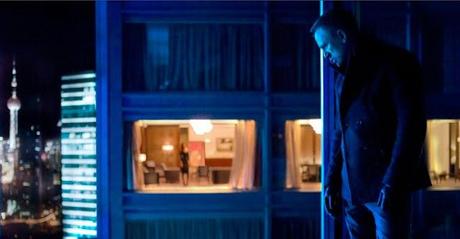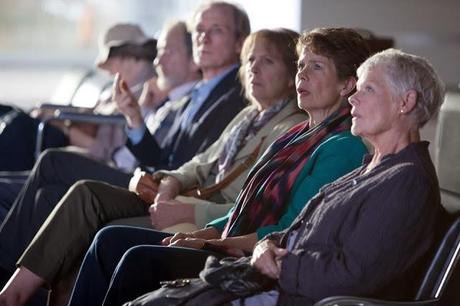
Anticipating the ire of their many detractors, Tim Heidecker and Eric Wareheim build their feature-length Billion Dollar Movie on a joke that plays on them inexplicably receiving money from major corporate interests to do their thing in the mainstream. The creative duo's audacity has often eclipsed the actual content of their 11-minute episodes on Adult Swim, making the prospect of a 95-minute feature daunting. Surprise, surprise, this is amazingly focused, with something approaching a plot and everything. Because a relatively stable foundation grounds the film, Tim and Eric's usual diversions manage to pack more punch for letting the nuances of their weirdness shine through. Every technical hiccup, awkward insert shot and flat line of dialog delivered just a second too late creates a sense of discomfort like a low-frequency sound. I cannot explain why I find that effect hilarious, but then, the sight of John C. Reilly hacking up a lung as a Dickensian, wolf-raised orphan or Ray Wise presiding over a grotesque sort of body cleanse need no justification. Grade: B-
Skyfall (Sam Mendes, 2012)

I had intended a podcast appearance I made with Corey Atad of JustATad and fellow guest Calum Marsh (a fantastic freelance writer you can follow on Twitter here) to stand as my Skyfall thoughts, but sadly the audio was lost. To condense the thoughts I expressed there, I found myself mildly mixed but, for the most part, highly satisfied by this latest Bond outing. Mendes is the director, but it's Roger Deakins who steals the show, silhouetting and backlighting action sequences to visually match M's (Judi Dench) assertion that war now takes place in the shadows and just generally setting a new aesthetic standard for action films. Skyfall attempts to bridge the franchise reinvention under the Daniel Craig era to Bond's larger history as an ostentatious escape vehicle. When Deakins lights Craig in such a way that he looks both haggard and more iconic than any Bond since Moore, maybe even Connery, or when Craig pauses for a second in the middle of a visceral action sequence that rips the end out of a train to adjust his cufflinks, this really does seem like the best Bond movie of them all.
But the audience cannot be trusted to pick up on such things, so we get a barrage of cute references to previous films that may end up dating Skyfall as badly as prior attempts at self-awareness. The plot is as nonsensical and half-justified as any other Bond film, but here it places so much stock in Joker-esque plotting that the holes stand out more. Nevertheless, this is superbly acted (Javier Bardem continues to be an arresting villain, while Ralph Fiennes suggests gulfs of hidden personality and secrets within a small part), and the Shanghai sequence may be a franchise-best action scene. But as much as Craig's films have cut the waffle on a bloated franchise, Skyfall retains certain elements of misogyny and fascism that now seem inseparable from the brand, and as pleased as I was with so much of the movie, I was left feeling that it could have been the best of the 50-year-old franchise rather than merely in the top 10. There are worse "disappointments" in the world. Grade: B
The Best Exotic Marigold Hotel (John Madden, 2012)

Eat, Pray, Love rubbed down with Bengay, The Best Exotic Marigold Hotel uses a vibrant, agreeably "real" (read: poor and densely populated) India to allow a group of British retirees to find themselves. Like so many movies of this ilk, Marigold Hotel takes place in a cultural green zone, where the impoverished Indians always smile at those born when India was still the Jewel in the Crown and everyone conveniently speaks perfect English until someone has a racist comment to make, at which point the recipient of hate can only continue to smile ignorantly. Wouldn't want anyone to register the sting of harsh words and break the spell, would we? But of course, the mixture of bewildered and hateful Brits who arrive are slowly softened by tours of places that contain just enough reality to not seem like the kept-up attractions they are. With a cast comprising such talents as Judi Dench, Tom Wilkinson and Bill Nighy, the film cannot help but be entertaining, and its message of it never being too late to make amends or find new happiness is a fine one. Wilkinson's arc, a retired judge who is returning (not merely traveling) to India in order to make peace with a horror he left behind, even manages to treat the areas outside the romantically dilapidated and hermetically sealed realm the characters inhabit with severity and actual empathy. Yet the most insightful comment of all may come from the most sheltered and enduringly prejudiced of the characters, who falls to pieces as the rest acclimate and accuses everyone else of self-delusion. She is positioned as the most repugnant character in the film, more so even than Maggie Smith's virulently racist housekeeper, yet her words ring truest of all. Grade: C-

